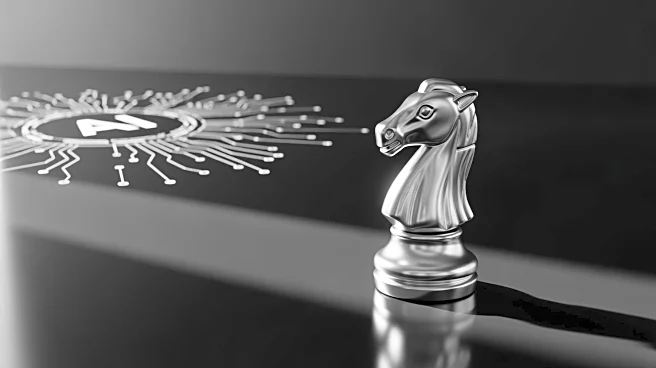What is the story about?
What's Happening?
Researchers at Columbia University have published a study indicating that stress reduction can lead to the reversal of gray hair. The study involved analyzing hair samples from 14 participants, correlating their hair color changes with stress levels over the past year. The researchers identified 323 proteins that determine hair color and found that some participants experienced a return to their natural hair color following periods of reduced stress. This discovery suggests that de-stressing events can potentially reverse hair graying, although further research is needed to confirm these findings, especially in individuals over the age of 40.
Why It's Important?
The study's findings have significant implications for understanding the relationship between stress and physical health. Gray hair, a visible sign of aging, could become a diagnostic tool for assessing stress levels and overall health. This research highlights the importance of stress management in maintaining physical well-being and could influence public health strategies and personal lifestyle choices. Additionally, the potential to reverse gray hair naturally may impact the global hair color industry, which is valued at $23 billion and projected to grow significantly.
What's Next?
Further studies are required to explore the potential of reversing gray hair in older individuals and to understand the underlying biological mechanisms. Researchers may investigate stem cell therapies to restore hair color, which could lead to new medical treatments. The findings may also prompt changes in workplace policies, emphasizing stress reduction to improve employee health and productivity. As awareness of the connection between stress and hair color grows, it could lead to shifts in societal attitudes towards stress management and personal health.
Beyond the Headlines
The study opens up discussions on the ethical implications of using hair color as a health indicator. It raises questions about privacy and the potential misuse of stem cell therapies for cosmetic purposes. The research also underscores the cultural significance of hair color and its impact on self-perception and identity. As scientific understanding of stress and its effects on the body evolves, it may lead to broader societal changes in how stress is perceived and managed.















